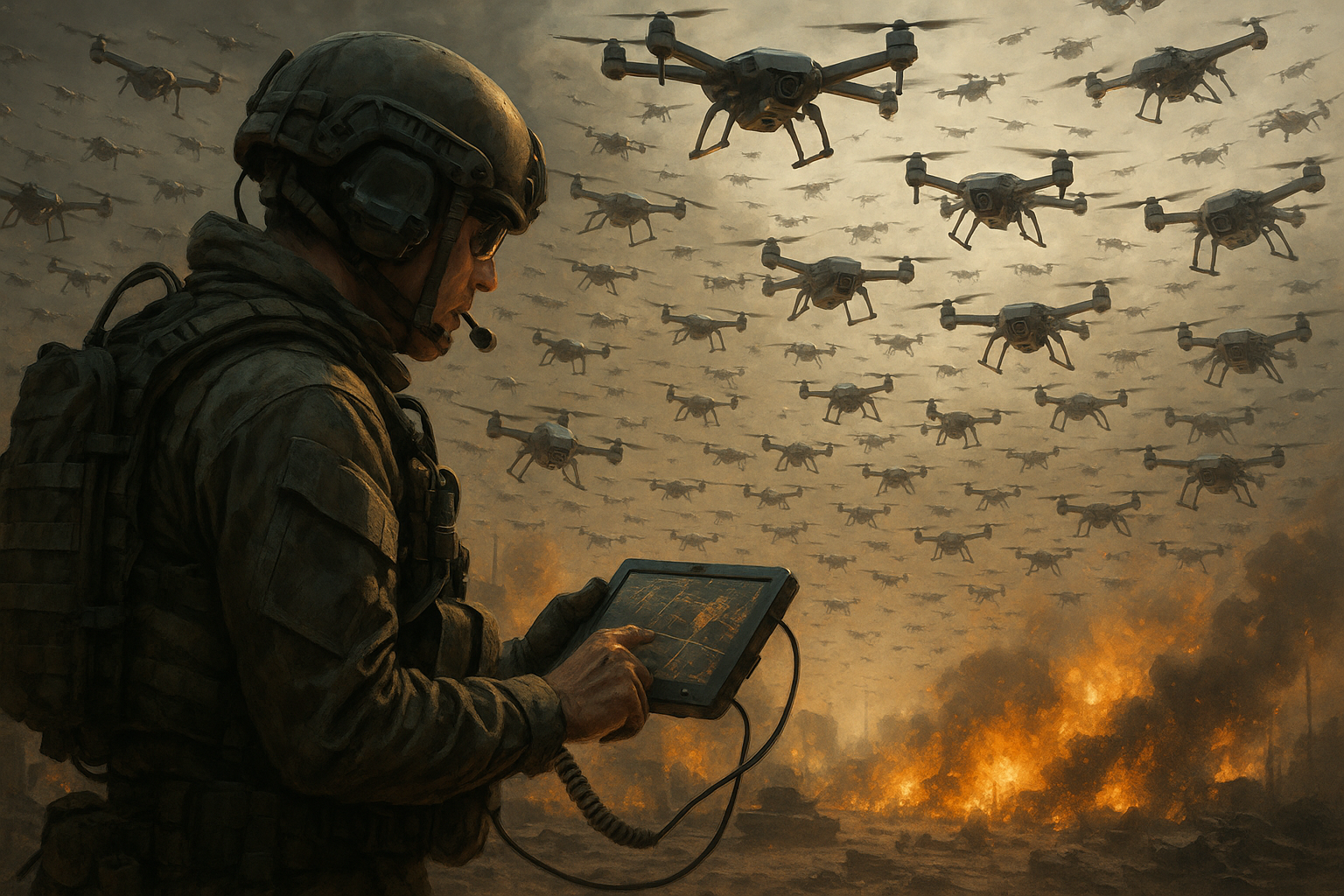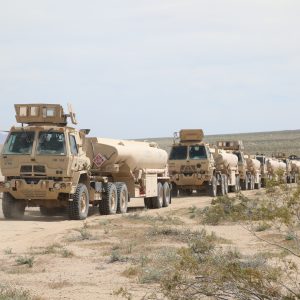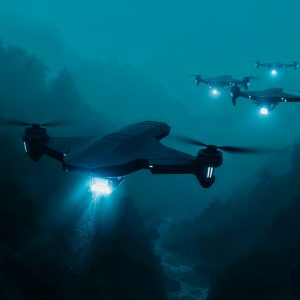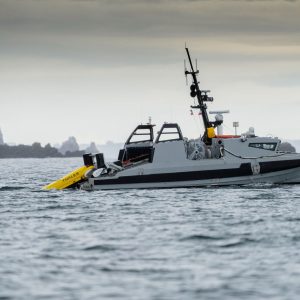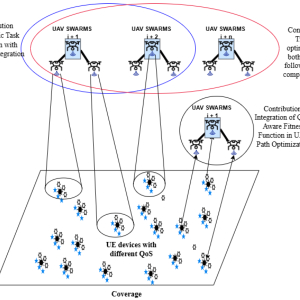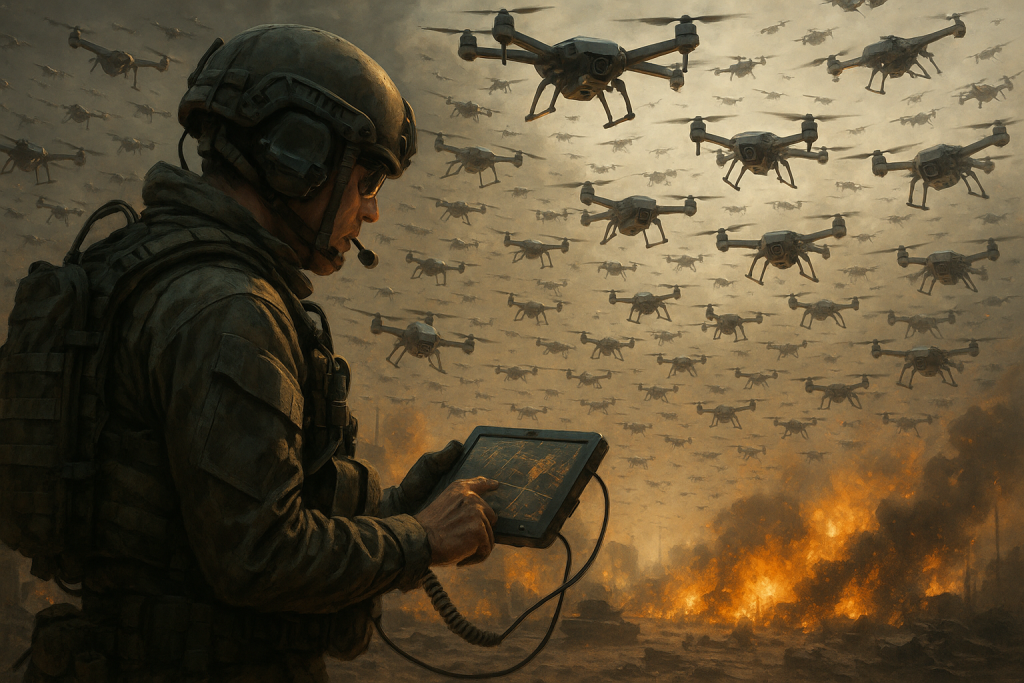
The Rise of Swarm Technology in Defence and Aerospace
Swarm technology has emerged as a transformative force in modern military operations, reshaping the future of combat strategies across air, land, sea, and cyberspace. Inspired by nature’s collective intelligence—observed in organisms like bees, ants, and certain bird species—this technology enables multiple autonomous entities to collaborate dynamically, enhancing operational superiority and reducing human risk.
Swarm-based tactics are now central to next-generation defence programs, with leading nations investing heavily to secure technological dominance in this domain.
Understanding Swarm Technology
At its core, swarm technology involves the coordinated deployment of large numbers of autonomous drones or unmanned vehicles, operating collaboratively to achieve mission objectives. Unlike traditional systems that rely on centralized command, swarms leverage distributed intelligence, allowing each unit to adapt, respond, and contribute to the mission in real-time. This flexibility enables:
- Rapid threat detection and neutralization
- Overwhelming adversaries through numerical superiority
- Improved survivability and operational resilience
Evolution of Swarm Warfare
Swarm warfare theory can be traced back to strategists like Sean Edwards, who outlined the “find, close, engage, and assess” principle, and thinkers such as John Arquilla and David Ronfeldt, who defined swarm tactics as multidirectional attacks aimed at disrupting enemy decision-making and force cohesion.
Today, swarm warfare has progressed beyond theory, with live operational tests showcasing its potential to redefine battlefield dominance, enabling simultaneous strikes, perimeter encirclement, and autonomous decision-making capabilities.
Military Applications
Modern defence forces are harnessing swarm technology across multiple mission sets:
- Intelligence, Surveillance, and Reconnaissance (ISR): Swarm drones can cover vast areas, providing continuous real-time data.
- Offensive Operations: Coordinated drone swarms can execute high-precision strikes on critical targets.
- Electronic Warfare: Swarms can overwhelm enemy air defences by saturating radar systems.
- Logistics Support: Autonomous vehicles can deliver supplies across contested terrains without endangering human personnel.
The Role of AI in Swarm Operations
Artificial Intelligence (AI) is the cornerstone of swarm technology, granting unmanned platforms:
- Autonomous navigation and obstacle avoidance
- Adaptive mission planning based on changing conditions
- Distributed decision-making with minimal operator input
AI-driven swarms reduce reliance on centralized control, making them resilient to jamming or communication disruptions—a crucial advantage in high-threat environments.
Strategic Implications for Global Security
Swarm technology is becoming a strategic force multiplier in the modern battlespace. Nations such as the United States (through the DARPA Gremlin program) and European allies (via the EuroSWARM initiative) are accelerating their R&D efforts to achieve technological superiority in autonomous combat systems. This race is shaping future doctrines for:
- Air dominance using drone formations
- Naval and undersea swarm operations
- Cyber and electronic swarm countermeasures
For Türkiye and its rapidly growing defence industry, swarm technology presents an opportunity to advance indigenous unmanned systems capabilities, strengthening deterrence and interoperability with NATO allies.
Challenges and Ethical Considerations
The rise of autonomous swarms raises complex ethical and operational dilemmas:
- Accountability in autonomous strikes – determining responsibility when AI makes lethal decisions.
- Civilian safety risks in urban or mixed-use environments.
- Escalation dynamics where swarms could lower the threshold for initiating conflict.
Policymakers and defence leaders must develop robust frameworks for rules of engagement, AI oversight, and human-in-the-loop controls to mitigate these risks.
Conclusion
Swarm technology is revolutionizing modern warfare, enabling militaries to achieve unparalleled operational agility, scalability, and strategic reach. As autonomous systems mature, their role in deterrence, rapid response, and multi-domain operations will only expand.
Defence stakeholders must balance innovation with ethical responsibility, ensuring swarm technology strengthens collective security rather than destabilizing global peace.

